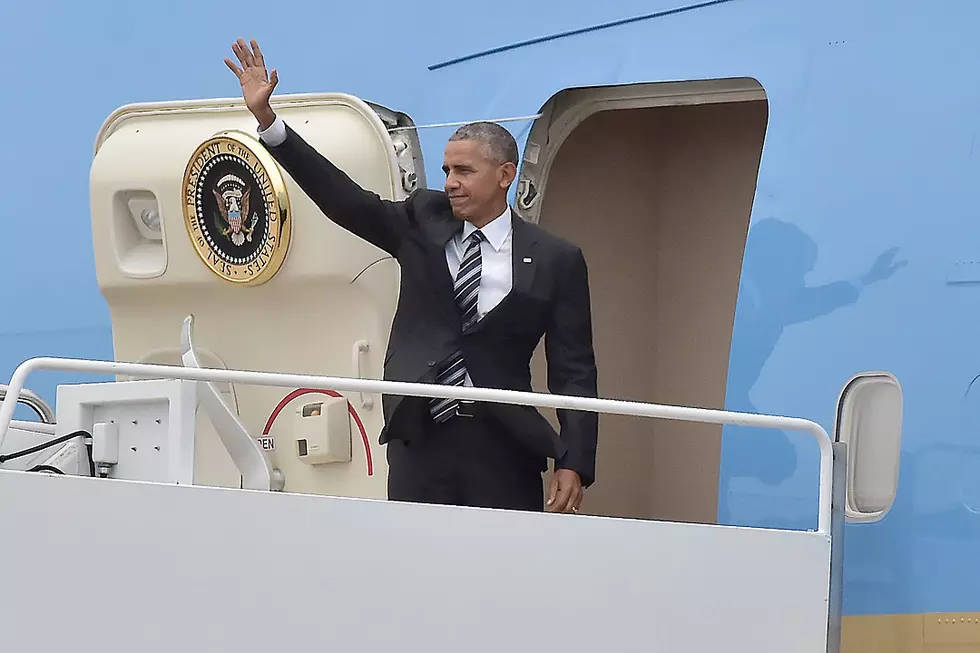
U.W. Law Prof: Delaying Scalia Replacement Would Affect High Court For Nearly Two Years
The nation's polarized political climate could do a serious disservice to the judiciary for a long time if a replacement for the late Supreme Court Justice Antonin Scalia is not made soon.
"If (President) Obama doesn't nominate, the seat on the Supreme Court will probably be empty for about 18 months," University of Wyoming constitutional law professor Stephen Feldman said Monday.
"And I think that's unprecedented to have a seat sit vacant for that length of time," Feldman said.
Scalia, who was found dead at a private residence in west Texas on Saturday, was the leading conservative justice and often influenced important decisions on a sometimes deeply divided court.
"Scalia's passing away is of enormous consequence for the Supreme Court, and of course we're in this election year, it's being thrust into the news," Feldman said. "Personally, I thought the Supreme Court should have been a much larger issue in presidential debates."
If it wasn't before, it sure is now because Scalia's death brings the three branches of government into sharp focus.
The Constitution -- Article 2, Section 2, Clause 2 -- says the president shall have the power, "by with the Advice and Consent of the Senate" to nominate justices.
Supreme Court vacancies historically have been political flash points, even though they don't happen very often and happen rarely with a justice's death during a presidential election year.
There have been vacancies during the last year of a president's term. In those rare cases, presidents have been relatively successful in nominating a prospective justice followed by a confirmation, Feldman said. However, that usually has happened when the president and the Senate majority are politically aligned, he said.
They aren't in 2016.
Just hours after the announcement of Scalia's death, Senate Majority Leader Mitch McConnell, R-Ky., said the Senate will not consider any nominee from Obama because it's the president's last year in office. GOP presidential candidates have urged delay, filibuster and outright rejection of any nominee.
Feldman said the argument could be made that the Senate has a constitutional duty to at least consider a nomination.
But the Senate can do what it wants, he added.
If the Senate decides not to act, its members have to count their political gains or losses, Feldman said. "The question is, how will the public react?"
The public might like the idea of waiting, but it might not like the reality of waiting.
At the earliest, the next president could make a nomination in late January 2017. If the president and the Senate are from the same party, the nomination process will take months. If the parties are different, the process probably will take longer, especially if the Senate rejects a nominee and the president has to nominate someone else.
It's not unreasonable to expect the approval of a new justice until spring 2017. By then, it probably would be too late for that justice to help decide cases in the 2016-2017 term, because many decisions are done and issued in May and June.
So the high court probably would not be able to function with nine justices until October 2017 when hearings would begin for cases that would not be decided until late spring 2018.
"It would almost be like two full terms of the Supreme Court were wiped out," Feldman said. "Which is obviously a big problem."
But that big problem, namely the delay of justice, may be endurable politically for the Republican Senate, whose members could consider and reject a nominee or resort to a filibuster.
It takes 60 votes in the Senate to overcome a filibuster, which means Obama would need to persuade 14 Republican senators plus all 46 Democratic senators to move a nomination along, Feldman said. "In the current circumstances, it seems almost impossible."
More From 104.7 KISS-FM





![President Obama Goes Out Of His Way To Fist Bumb Child [VIDEO]](http://townsquare.media/site/147/files/2015/05/463077682.jpg?w=980&q=75)
![President Obama Pokes Fun At Himself In Buzzfeed Video [VIDEO]](http://townsquare.media/site/147/files/2015/02/463077682.jpg?w=980&q=75)

![President Obama Issues Statement About ‘The Interview’ Controversy, Mispronounces James Franco’s Name [VIDEO]](http://townsquare.media/site/252/files/2014/12/presidentobama.jpg?w=980&q=75)
